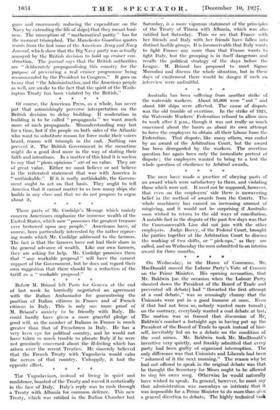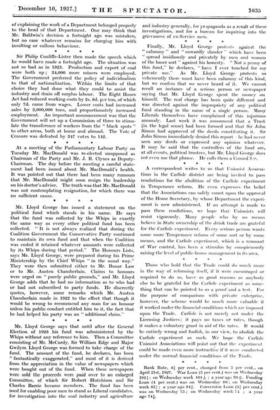On Wednesday, in the House of Commons, Mr. MacDonald moved
the Labour Party's Vote of Censure on the Prime Minister. His opening accusation, that Mr. Baldwin (on the occasion- when the Labour Party shouted down the President of the BoArd 'of Trade and prevented all debate) had-" thwarted the first attempt at a coal debate," was so amusingly clumsy that the Unionists were put in a good humour at once. Even if that had not been so, nobody wanted more tumult ;, on the contrary, everybody Wanted a coal debate at last. The motion was so framed that discussion of Mr. Baldwin's conduct a fortnight ago in having put up the President of the Board of Trade to speak, instead of him- . self, inevitably. led on to a debate -on the condition of the -coal mines. Mr. Baldwin - took, Mr. _ MaaDonald's invective very quietly, and frankly admitted that every party had been guilty of organized interruption..: . The only difference. was that Unionists and Liberals; had -been " ashamed of it the next morning." The reason why he had not offered to speak in the original debate was that be thought the-Secretary for Mines ought to be allowed to ising his swan song. Otherwise he would naturally have wished to speak. In. general, however, he must say that administration was .nowadays so intricate ;that it was impossible for &Prime Minister to do more thamgive a general direction to debate. The highly technical task of explaining the work of a Department belonged properly to the head of that Department. One may think that Mr. Baldwin's decision a fortnight ago' was mistaken, but no case whatever remains for charging him with insulting or callous behaviour.











































 Previous page
Previous page